I’m Tired of Being Treated Like a Free Babysitter Just Because I Don’t Have Kids

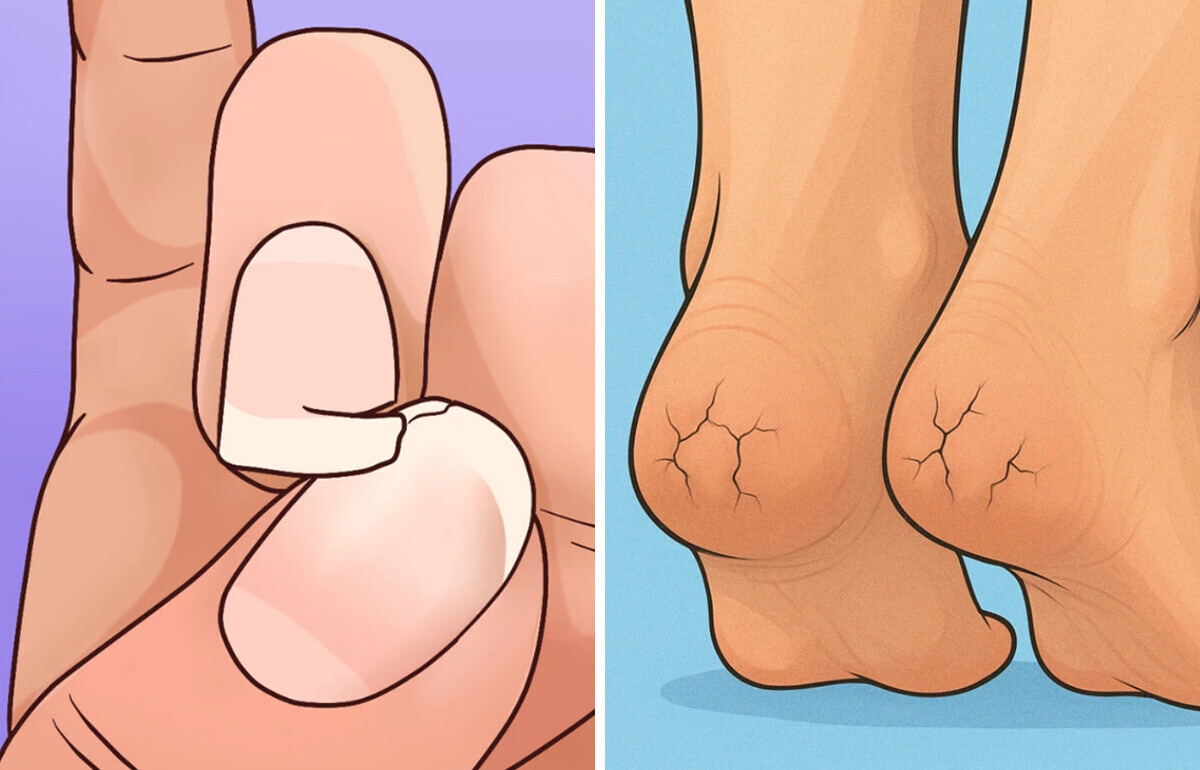
Do you think a dairy allergy can only cause rashes and swelling? Let me tell you a secret: your body can send much stranger and more confusing messages than that. And no, we’re not talking about lactose intolerance — the kind that sends you running to the bathroom — but a true allergy, which can affect various systems and manifest as unusual symptoms. Do you often feel tired, have skin problems, or get headaches for no apparent reason? It could be milk at the root of the problem. Here are 10 unusual signs that could be your body’s way of saying, “I’m allergic to dairy — help!”
Content is provided for informational purposes only and is not intended as for substitute of medical advice. Seek the guidance of your doctor regarding your health and medical conditions.
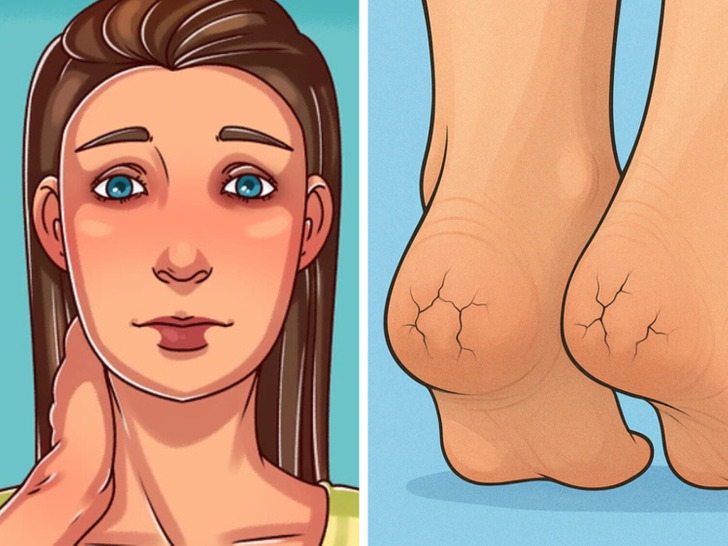
Atopic dermatitis and persistent eczema can be a delayed immune system reaction to milk proteins. These proteins trigger the release of inflammatory substances by immune cells, which irritate the skin and produce red, dry, itchy patches. If the condition does not improve with common topical treatments and appears or worsens after consuming dairy products, this may indicate an allergy, particularly in young children.

In babies and children, a milk allergy can cause acid reflux. This manifests as frequent vomiting or regurgitation. This symptom may be overlooked if it is mistakenly attributed to colic or poor nutrition, but it is an immune response indicating an allergy rather than a simple intolerance.

Although we tend to associate weak nails with calcium deficiency, they can also be a sign of chronic inflammation caused by an allergy to certain foods, such as dairy products. Even if you eat well and take care of yourself, if your nails still break easily, it may be time to check if dairy products are sabotaging your nutrition.
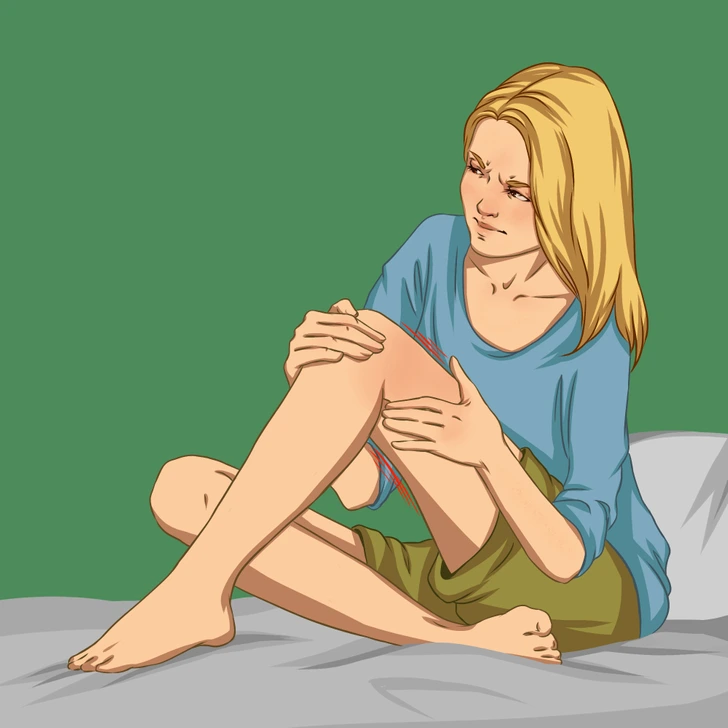
Milk proteins can trigger an inflammatory response that affects joint and muscle tissue. This can result in pain or stiffness. However, this symptom can be alleviated by eliminating dairy products from the diet.

Allergies can cause inflammation of the mucous membranes in the nose and sinuses. This can lead to congestion, discharge or a constant nasal drip, even when there is no common allergen (such as pollen) or respiratory infection present. This persistent congestion can interfere with normal breathing and have an impact on quality of life.

Constant activation of the immune system caused by systemic inflammation triggered by allergies can lead to profound fatigue and “brain fog.” These symptoms make it difficult to maintain focus, retain information or perform intellectual tasks. They are often confused with stress or lack of sleep, but can improve when the allergy is detected and treated.

Discomfort caused by allergies can disrupt sleep due to either nasal congestion making breathing difficult or inflammation causing physical discomfort. Consequently, those affected may experience frequent awakenings, poor sleep quality and tiredness the following day.
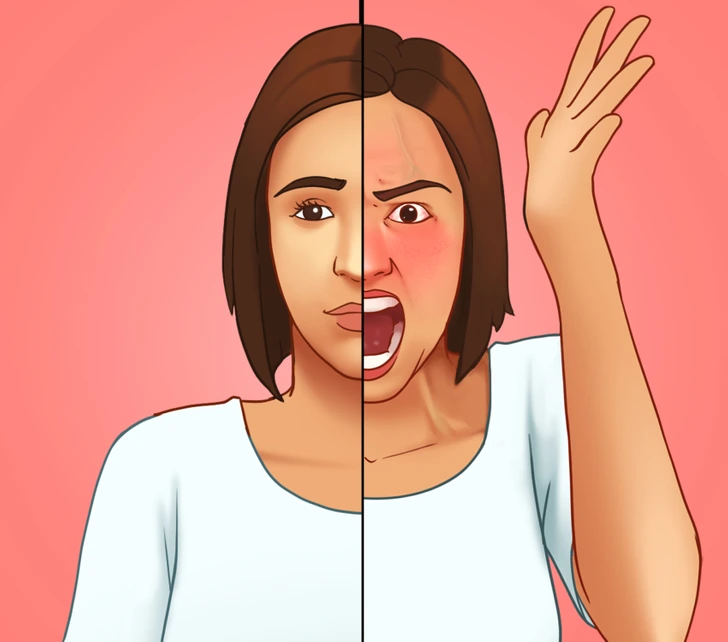
Chronic inflammation can affect the production and balance of neurotransmitters in the brain, resulting in symptoms such as anxiety, irritability and mood swings. Many people with food allergies report an improvement in their emotional well-being when they manage their condition.
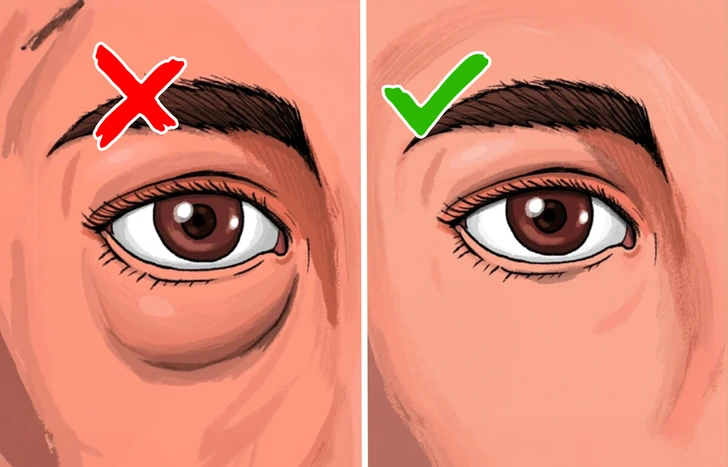
Some allergic reactions manifest as mild but uncomfortable swelling in sensitive areas, particularly after consuming dairy products such as cheese or yoghurt. While not reaching the level of anaphylaxis, this swelling indicates an immune system reaction and may be an early sign of an allergy.

For some people, a milk allergy can trigger the release of inflammatory mediators that affect cerebral blood flow, resulting in severe and recurring migraines. While this relationship is still being studied, it has been reported that eliminating dairy products from the diet has reduced the frequency and severity of the headaches.

A milk allergy can cause the release of histamine, a chemical that causes symptoms such as coughing, wheezing and hives unrelated to common respiratory infections or diagnosed asthma. These symptoms may go unnoticed or be misdiagnosed, but it is important to recognize them in order to avoid complications.

An allergy or sensitivity to dairy products can contribute to the development of acne. Why? Because dairy products can affect hormone levels and cause skin inflammation. If you have persistent pimples, especially on your chin, jaw, or cheeks, and they don’t clear up with dermatological treatments, you may need to cut out dairy products.
Sometimes, the way your body tells you that something isn’t good for it is by giving you subtle hints. And if you’re interested in learning more about how to interpret these subtle signs from your body, check out this other article on symptoms in your eyes that could indicate a health problem. Sometimes, the answer lies in the look.











